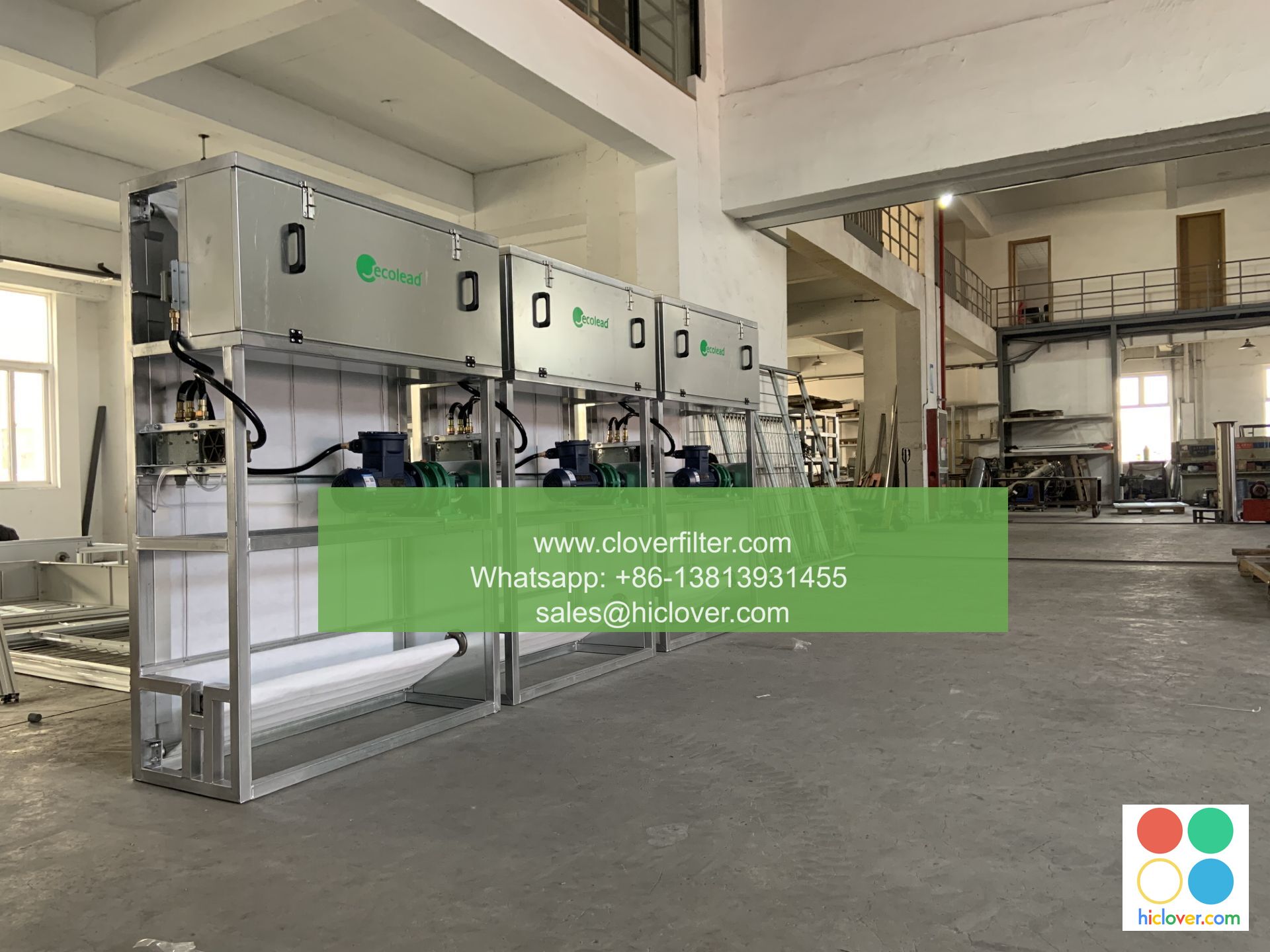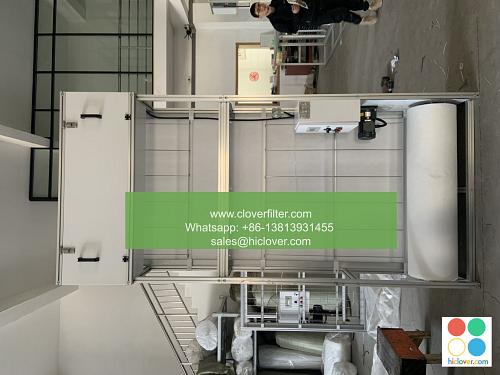The Future of Air Filtration in Food Packaging: Trends and Predictions for Automatic Roll Air Filters

The air filtration industry has witnessed significant advancements in recent years, driven by increasing concerns over food safety and quality. In the context of food packaging, air filtration plays a crucial role in maintaining the freshness and integrity of products. As technology continues to evolve, automatic roll air filters are emerging as a key trend in the future of air filtration for food packaging. This article will delve into the current state of air filtration in food packaging, explore the trends and predictions surrounding automatic roll air filters, and examine the potential impact on the industry.
Traditional air filtration systems have several limitations, including high maintenance costs, limited filter lifespan, and inadequate filtration efficiency. In contrast, automatic roll air filters offer a range of benefits, including improved filtration efficiency, reduced maintenance costs, and increased durability. These filters utilize a continuous roll of filter media, which can be automatically advanced and replaced as needed, minimizing downtime and reducing labor costs.
One of the primary drivers of the adoption of automatic roll air filters in food packaging is the increasing demand for high-quality and safe products. Consumers are becoming increasingly aware of the importance of food safety, and manufacturers are responding by implementing more stringent quality control measures. Automatic roll air filters can help to reduce the risk of contamination by removing airborne particles and microorganisms from the packaging environment.
Another significant trend in the air filtration industry is the integration of Internet of Things (IoT) technology and data analytics. Automatic roll air filters can be equipped with sensors and monitoring systems, allowing manufacturers to track filtration performance, detect potential issues, and optimize maintenance schedules. This data-driven approach can help to improve overall efficiency, reduce energy consumption, and extend filter lifespan.
In addition to improved filtration efficiency and data analytics, automatic roll air filters are also becoming more environmentally friendly. Many manufacturers are now offering sustainable filter media options, such as recycled materials or biodegradable filters, which can help to reduce waste and minimize the environmental impact of air filtration systems.
Predictions for the future of air filtration in food packaging suggest that automatic roll air filters will continue to play a dominant role. As food safety regulations become increasingly stringent, manufacturers will be forced to adopt more advanced and efficient air filtration systems. The integration of IoT technology and data analytics will also become more widespread, enabling manufacturers to optimize filtration performance and reduce costs.
Furthermore, the development of new filter media technologies, such as nanofiber filters and antimicrobial filters, will offer improved filtration efficiency and enhanced product safety. These advances will be driven by ongoing research and development in the field of air filtration, as well as increasing demand from consumers and regulators for high-quality and safe products.
In conclusion, the future of air filtration in food packaging is poised for significant growth and innovation, driven by the adoption of automatic roll air filters and the integration of IoT technology and data analytics. As manufacturers continue to prioritize food safety and quality, the demand for advanced air filtration systems will increase, driving the development of new technologies and sustainable solutions.
Conclusion
The air filtration industry is on the cusp of a significant transformation, driven by the need for improved food safety and quality. Automatic roll air filters offer a range of benefits, including improved filtration efficiency, reduced maintenance costs, and increased durability. As the industry continues to evolve, we can expect to see the widespread adoption of IoT technology and data analytics, as well as the development of new filter media technologies. By embracing these advances, manufacturers can help to ensure the production of high-quality and safe products, while also reducing costs and minimizing their environmental impact.
FAQs
Q: What are automatic roll air filters, and how do they work?
A: Automatic roll air filters utilize a continuous roll of filter media, which can be automatically advanced and replaced as needed. This design minimizes downtime and reduces labor costs, while also improving filtration efficiency.
Q: What are the benefits of using automatic roll air filters in food packaging?
A: The benefits of using automatic roll air filters in food packaging include improved filtration efficiency, reduced maintenance costs, and increased durability. These filters can also help to reduce the risk of contamination and improve overall product safety.
Q: How will IoT technology and data analytics impact the air filtration industry?
A: The integration of IoT technology and data analytics will enable manufacturers to track filtration performance, detect potential issues, and optimize maintenance schedules. This data-driven approach can help to improve overall efficiency, reduce energy consumption, and extend filter lifespan.
Q: What does the future hold for air filtration in food packaging?
A: The future of air filtration in food packaging is poised for significant growth and innovation, driven by the adoption of automatic roll air filters and the integration of IoT technology and data analytics. As manufacturers continue to prioritize food safety and quality, the demand for advanced air filtration systems will increase, driving the development of new technologies and sustainable solutions.

